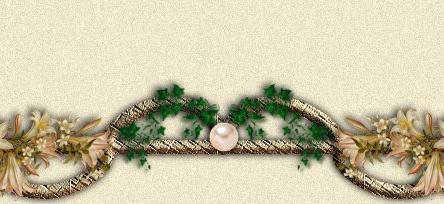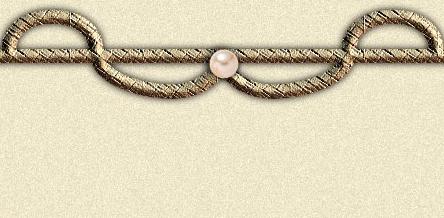 |
 |
 |
|
Thinking
About Death – and Beyond This morning we’re
thinking about death, death in general and our own death in particular…and
what lies beyond. I realize that few of us enjoy talking about the prospect of
death and dying. But I believe it is essential that we think about this from
time to time simply because it is impossible to live a rich, full life here in
this world, if always there is this dark, foreboding, fearful cloud
overshadowing us. From our point of view, death seems final. And I suppose everyone wonders about what happens after our physical body dies. There are some who believe that physical death marks the end of that particular life – the person ceases to exist as a person. Others claim that we sleep in the grave for some hundreds or thousands of years, and then at the blowing of the last trumpet we shall all be re-activated, the good and the evil shall be separated, the good living with God in paradise and the wicked burning in hell fire. This is about as horrible and unjust a picture as I can possibly imagine and I pray God that it will soon vanish from the minds of people. Many millions of people believe in a kind of eternal bliss, Nirvana, or it may be given some other name. Perhaps most common is the view that we simply cannot know…we just have to wait and hope for the best. Well, if God is as good and as wise as we believe Him to be, it seems reasonable to me that He would give us some information about life after death. After all, we only live here for a very few, short years, compared to eternity, and if God loves us as much as we know he does, why should He keep this knowledge locked away in a dark closet?! It doesn’t add up. I recall when I was about twelve years old and we moved out to the west coast from the prairies. Before we made the move Dad told us all he could about the Fraser Valley – about the scenery, climate, people, etc. – and so we knew pretty well what to expect. There was no great shock to our system when the move came. Now, my father was a very thoughtful and good man, but God must be at least a million billion times as wise and loving as Dad, and if Father would think of paving the way for his children, surely God does the very same thing for us. It seems reasonable to assume that God would give us some idea of what the spiritual world is all about, inasmuch as it is the most important part of our lives. And I’m certain that almost all of us, each in our own way, have had glimpses, insights, into a dimension of life that is nobler and finer than this physical world provides. We somehow sense that there must be something more to our existence than breakable flesh and bones in a less than perfect world. This life is great, but we sense that in itself it is incomplete, unfulfilled. The Swedenborgian faith gives us a picture of the spiritual world that I believe is worthy of our serious consideration. It is based on the Scriptures; it is in harmony with the findings of modern science; it appeals to our reason; it answers our deepest yearnings. Very briefly, Swedenborg tells us that the spiritual world is all around us and hopefully growing within us. It is hidden from view now simply by the dullness and grossness of our bodily faculties. When our physical body dies, which happens to every one of us in God’s good time, it is cast off, never again to be used. It has served its use. Our soul, our spirit, which we have from the moment of our conception, and which is comprised of our whole lifetime of experiences, all of our loves and thoughts and desires and memories, everything that makes us a person – all of which is contained in a familiar, recognizable form – this true personhood is awakened immediately in the spiritual world. Death does not change our basic nature; there is no reason that it should. And so we wake in the spiritual world, very conscious of who and what we are, and we have all our faculties and sense. I daresay some people are quite surprised to find themselves in this condition. There are no streets paved with gold, no harps, no wings, no furnaces, and in fact the environment looks amazingly familiar. When we were born into this world we were met and warmly welcomed by a loving family, and so it will be over there. People who have died previously will be there to greet us – grandparents, family members, friends – and they will stay with us and help us as long as we want them to, no more, no less. Husbands and wives meet again, and eventually, and if their love for each other has been genuine and true, they will want to go on living together as man and wife. If their marriage love is not real, they will soon separate. Happily, if they have cherished the ideal of marriage love while in this world they will eventually find their true eternal partner. This has a way of working out – it happens under God’s Providence, if this is what we want to have happen to us. There are all sorts of employments and jobs to be done in the spiritual world. Wouldn’t it be hell to just sit around doing nothing all day! The happiest person is always the person who is doing something worthwhile with his time and talents, every time. This is the way God made us, and this is the way the Good Life is, both here and hereafter. I would like to make this one point very clear. We can't separate life; it is all cut from one fabric. Whether we live here or in the spiritual world it is all Life – it is all made up of personal relationships with other people and with God. And so what you think about life after death is based almost entirely on what you think about life before death, here and now. If you think that life here is basically an unplanned, absurd, unjust, meaningless, painful affair – if you think this about life – you almost certainly will not believe in a life after death. Life here is bad enough – who needs more of it? But if you feel that life is a grand and glorious experience, full of opportunities to grow, to expand; if you think of life as always leading on to new vistas, as a gift to be enjoyed and tasted to the full; if you think this about life, then it will be very natural and easy for you to look upon death as opening the door to more of the same endlessly. Life is life, whether we’re here or there, and the point to bear in mind is that our life there is an extension of our life here. If we care to be extremely honest with ourselves (and this may hurt a little) we can tell pretty well in which direction we’re heading, simply by asking ourselves: “What kinds of things do I really enjoy doing?” “What kinds of people do I most enjoy being with?” What kind of person am I becoming? You see, over the years we are gradually building heaven or hell within ourselves, and after we die we wake up in a sort of intermediate state, where for awhile we can pretend and fool people, as we do here, but then gradually our true self emerges, and very subtly and slowly we find ourselves drifting toward people and conditions like ourselves. Isn’t this how it is here – where we choose friends and activities that are compatible with our own inner states? This very same principle applies perfectly in the spiritual world. God loves us so much that He gives us this kind of freedom and responsibility. In this picture there is no judge and no judgment; we are still very much ourselves and we do exactly what we want to do with our lives. As we look at life from this perspective it seems obvious that a great deal depends upon the quality of our lifestyle here – and that our life here is, in effect, a kind of training school or preparation for life in eternity. Luke (7:11-17) tells of
Jesus meeting a band of sorrowing friends, bearing the body of a young man –
it’s always tragic when the young die – the only child of a widow. The Lord
took in this whole scene at a glance, His heart went out to the grieving mother,
and He said to her: “Don’t cry.” And then He said to the dead man, “Wake
up!” And he did – he sat up and began to speak. And the Lord gave him back
to his mother. I believe this actually happened – perhaps you don’t, and
this is all right, too – but I would ask that you listen to the underlying
message in this story. The Lord Jesus Christ is saying to you – wake up –
wake up now. Live now. Make the most of your life now. Don’t miss anything
that is good and true and lovely. Make the most of the life you know – that
you may have eternal life - Both now and f o r e v e r m o r e. The Lord struck the child that Uriah’s wife bore to David, and it became very ill. David therefore pleaded with God for the child; David fasted, and went in and lay all night on the ground. The elders of his house stood beside him, urging him to rise form the ground; but he would not, nor did he eat food with them. On the seventh day the child died. And the servants of David were afraid to tell him that the child was dead; for they said, “While the child was still alive, we spoke to him, and he did not listen to us; how then can we tell him the child is dead? He may do himself some harm.” But when David rose from the ground, washed, anointed himself, and changed his clothes, he went into the house of the Lord, and worshiped; he then went to his own house; and when he asked, they set food before him and he ate. Then his servants said to him, “What is this thing that you have done? You fasted and wept for the child while it was alive; but when the child died, you rose and ate food.” He said, “While the child was still alive, I fasted and slept; for I said, “Who knows? The Lord may be gracious to me, and the child may life.” But now he is dead; why should I fast? Can I bring him back again? I shall go to him, but he will not return to me.” 2 Samuel 12:7-23 Humans are so created that as to their internals they cannot die; for they can believe in and also love God, and thus be conjoined to God by faith and love; and to be conjoined to God is to live to eternity. This internal is with each person who is born; the external is that by which we bring into effect the things which are of our faith and love. The internal is called the spirit, and the external is called the body. The external…is accommodated to the uses in the natural world, this is rejected when we die; but the internal…is accommodated to the uses in the spiritual world, this does not die. This internal is then a good spirit and an angel, if the person had been good in the world; but an evil spirit if the person had been evil in the world… This continuation of life is meant by the resurrection. The reason why people believe that they will not rise again before the Last Judgment, when the whole visible world will perish, is because they have not understood the Word, and because a sensual person places all life in the body, and believes that unless this shall live again, it will be all over with the person. One’s life after death is the life of one’s love and the life of one’s faith; hence such as our love and faith had been, when we lived in the world, such our life will remain to eternity. With those who loved themselves and the world above all things, it is the life of hell; and with those who had loved God above all things, and the neighbor as themselves, it is the life of heaven. The latter are they who have faith; but the former are they who have no faith. The life of heaven is called eternal life; and the life of hell is called spiritual death. The New Jerusalem and Its Heavenly Doctrine #223-227
Music: Forever and a Day
|
||
 |
 |
 |





